Clinical Microbiology
The Department of Clinical Microbiology is a cross-disciplinary, clinical laboratory department at Odense University Hospital (OUH)
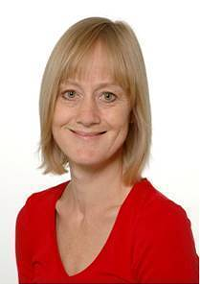
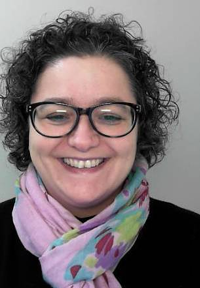
Pia Steinicke
Chief Biomedical Laboratory Scientist
Clinical Microbiology
+45 30 44 24 28 pia.steinicke@rsyd.dk

Ulrik Stenz Justesen
Professor, Consultant
Clinical Microbiology
+45 65 41 57 49 ulrik.stenz.justesen@rsyd.dk



Marianne Skov
Lead Molecular Biologist, Head of Research
Clinical Microbiology
+45 65 41 39 24 marianne.skov@rsyd.dk
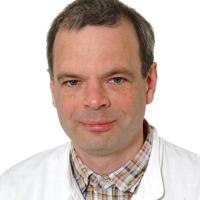

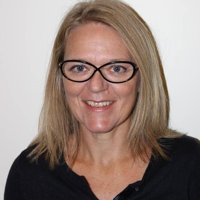
Gitte Nyvang Hartmeyer
MD, PhD, Associate Professor, Consultant
Clinical Microbiology
+ 45 65 41 47 83 gitte.hartmeyer@rsyd.dk
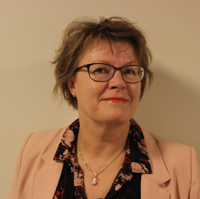
Sanne Grønvall Kjær Hansen
MD, PhD, Consultant
Clinical Microbiology
+45 65 41 13 48 sanne.groenvall.kjaer.hansen@rsyd.dk
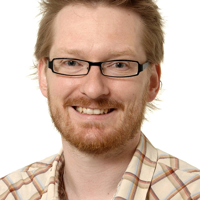
Kasper Klein
MD, PhD, Associate professor, Consultant
Clinical Microbiology
+45 65 41 47 97 kasper.klein@rsyd.dk
Charlotte Nielsen Agergaard
MD, Registrar
Clinical Microbiology
+45 65 41 47 97 charlotte.agergaard@rsyd.dk
Thomas Vognbjerg Sydenham
MD, PhD, Consultant
Clinical Microbiology
+45 65 41 47 97 thomas.sydenham@rsyd.dk
Nanna Skaarup Andersen
MD, PhD, Registrar
Clinical Microbiology
+ 45 65 41 47 97 nanna.skaarup.andersen@rsyd.dk
Anne Marie Rosendahl Madsen
MD, PhD, Registrar
Clinical Microbiology
+45 65 41 47 97 Anne.Rosendahl@rsyd.dk
The Department of Clinical Microbiology is a cross-disciplinary, clinical laboratory department at Odense University Hospital (OUH) which serves hospital departments at OUH (Odense University Hospital and Svendborg Hospital) as well as the primary health care sector with microbiological diagnostics and counselling, including infection control and hospital hygiene.
Main tasks of the Department:
- To handle regional and highly specialised functions within clinical microbiology.
- To diagnose infectious diseases on the basis of sample material from patients. For this purpose the Department uses microscopy, cultivation, mass spectrometry, PCR, DNA sequencing, antigen detection and serological examination for antibodies targeted at a number of micro-organisms.
- To carry out resistance testing on isolated bacteria and fungi.
- To offer clinical advice to departments and primary health care regarding diagnostics, prophylaxis and treatment of infectious diseases. The department is staffed with laboratory technicians during all hours and has a physician on call day and night.
- To carry out statutory registration, reporting and monitoring of infectious diseases.
- To host the OUH organisation of infection control and hospital hygiene and thereby manage all aspects of infection control at OUH and in primary municipalities which have entered into health agreements with OUH on infection control.
- To host the regional MRSA coordinating unit.
- To contribute to rational consumption of antibiotics at hospital departments and in general practice.
- To participate in basic training of laboratory technicians, in medical specialist training in clinical microbiology and infectious diseases and in specialist training for infection control nurses.
- To conduct research within selected areas of the departments fields of interest.
Infection control and monitoring of infections
- Registration of infections, including hospital-acquired infections.
- Infections associated with medical devices, including microbial adhesion.
- Staphylococcus aureus, including MRSA.
- Register based research in infectious diseases; the SYDBAK database.
- Food-borne infections.
- Typing of bacteria.
- Surveillance of infections and their transmission, including hospital aquired infections.
Antibiotic-resistance and treatment of infections
- Antimicrobial activity of non-antibiotics.
- Antibiotic-resistance in clinically important microorganisms, including resistance mechanisms.
- Audit as a tool to rational use of antibiotics.
Infection pathogenesis and diagnostics
- Atherosclerosis as an infection/inflammatory disease.
- Recurrent urinary tract infection: the role of intracellular bacteria.
- Emerging infectious diseases.
- Monitoring and characterizing parasitic diseases.
- Fungal infections.
- Vector-borne infections.
- Rapid and precise detection and characterization of microorganisms.
- Detection and characterisation of bacteria, fungi and virus by PCR and DNA sequencing, including whole genome sequencing.
- Typing of bacteria by Maldi-tof, PCR and DNA sequencing.
The Department carries out about 400,000 annual analyses of patient samples. This production has been increasing in recent years by about 10% annually. We have more than 7,000 registered medical consultations per year.
